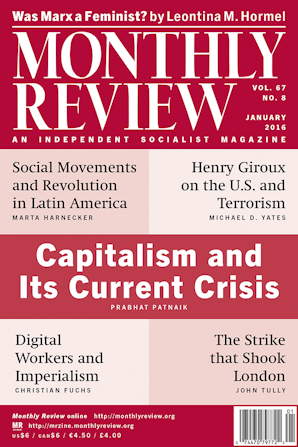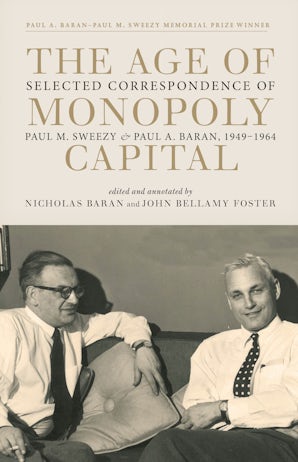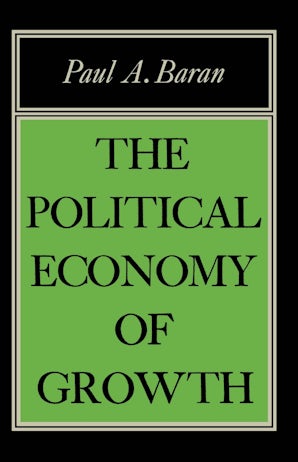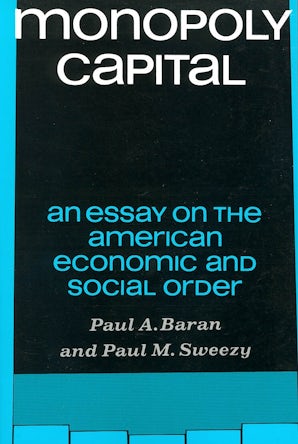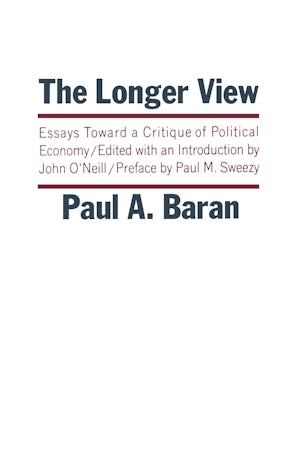Also in this issue
Books by Paul A. Baran
The Age of Monopoly Capital
Edited by John Bellamy Foster and Nicholas Baran
by Paul M. Sweezy and Paul A. Baran
Political Econ of Growth
by Paul A. Baran
Monopoly Capital
by Paul A. Baran
Longer View
by Paul A. Baran
Article by Paul A. Baran
- The Danger of Fascism in the United States: A View from the 1950s
- The Quality of Monopoly Capitalist Society: Mental Health
- Theses on Advertising
- The Quality of Monopoly Capitalist Society: Culture and Communications
- Some Theoretical Implications
- Last Letters: Correspondence on "Some Theoretical Implications"
- Two Letters on Monopoly Capital Theory
- The Dialectic of Social Science
- The Commitment of the Intellectual

